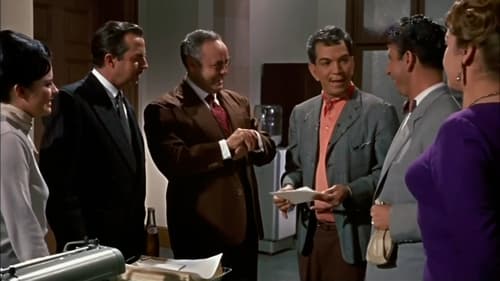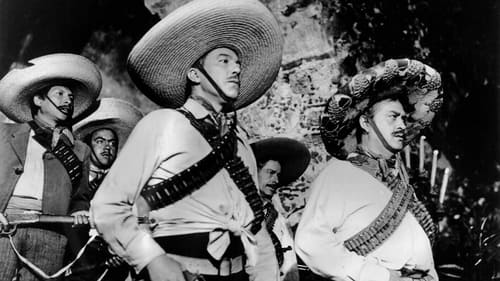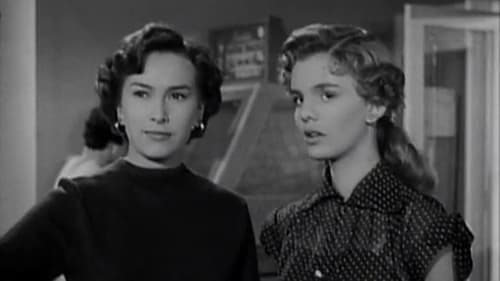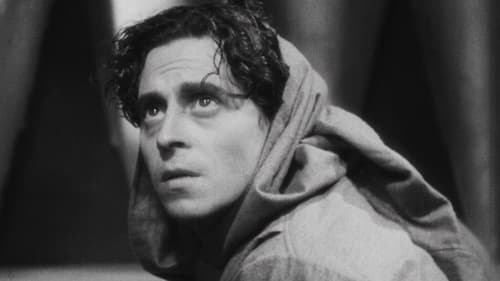Carlos Villatoro
Nascimento : 1903-01-14, Guatemala City, Guatemala
Morte : 1963-03-14

Assistant Director
Inocêncio Prieto y Calvo recebe uma carta dizendo que ele é o herdeiro da fortuna de seu tio de dois milhões de pesos. Não sendo capaz de ler, ele não faz ideia de quem enviou a carta ou o seu conteúdo. Então ele vai à farmácia porque o farmacêutico pode ler-lhe a carta. Mas enquanto espera para ser ajudado, ele vê que uma menina sabe ler. Ele então acha que precisa descobrir o conteúdo da carta sozinho, então decide guardar a carta e ir à escola para aprender a ler.

Assistant Director
Biographical south-of-the-border cowboy western adventure thriller of Mexican revolutionary leader Pancho Villa

Writer
Gangster's daughter learns about her dad's illegalist lifestyle.

Script Supervisor
A humble provincial writer who wants to publish his first book offers it to a film producer who is looking for locations for a film at that time. The novelist's family then moves to the big city, where they will have to face many adversities that will make them wish they had never left their village.

Writer
Los dineros del diablo (The Devil's Money) is a Mexican drama film directed by Alejandro Galindo. It was released in 1953 and starring Amalia Aguilar and Roberto Cañedo.

Screenplay
A man is making a research about the importance of familiar environment in children's future. First, he interviews a prostitute, Rosa, who's in jail because of the murderer of her pimp. She was a poor child, living only with her father. He wants to send his daughter to school, but they don't find place and the father has to leave the child with the neighbour, while he's working. But the man is hit by a car and dies. Years later, Rosa finds herself alone after her adoptive mother dies. A young man from his same vicinity, wants to help her, after hearing her singing. But the truth is that he wants to turn Rosa into a prostitute and live from her money. The other story is about a boy, who goes with his father to sign up in the school.

Script Supervisor
A low-class baker accidentally gets to know an attractive but bitter fiancée. By getting her snobby, dead-pan family to spend some time with his scumbag friends, he changes their lives, while at the time stealing the girl's heart.

Director
Three Mexican friends decide to go to Vercacruz Carnaval to celebrate. There they watch Cantinflas' show of torero and boxer.

Carlos Méndez

Alfredo
No te engañes corazón (released in English as Don't Fool Yourself Dear) is the first full-feature film of Cantinflas after becoming a star of the carpa circuit (folk theater). It was also one of the earliest films of Sara García and Carlos Orellana and the first where they share the screen. Don Boni (Orellana) is diagnosed with a deadly disease and decides to spend his last days doing good deeds. He leaves his wife and decides to help people. He then gets drunk and wakes up with a winning lottery ticket and realizes that the doctor who diagnosed him has been sent to prison for fraud.

chato

Javier
Dois monges católicos com um passado em comum reencontram-se em um monastério.

Eduardo
Alfonso, Eduardo and Cristina get lost when visiting a forest. A strange monk finds them and takes them to an ancient convent. There, the three amigos suffer personality changes, specially Cristina who tries to seduce Alfonso in a strange coincidence to a story told by an old monk. After some efforts to escape, Alfonso is trapped inside a jail and more strange and macabre situations happen.

Antonio
El Puño de Hierro, a Mexican Silent Film Classic In 1927, a startling silent film about drug addiction and trafficking was exhibited in a city in Mexico.

Ing. Adolfo Mariel
This action-packed thriller, which translates to “Ghost Train,” is about a railroad engineer who investigates a robbery spree, and falls for the stationmaster’s daughter. Director García Moreno received the full cooperation of the National Railroad in the making of the film, and it still stands today as a document of the great technological advances made in Mexico during the 1920s.










